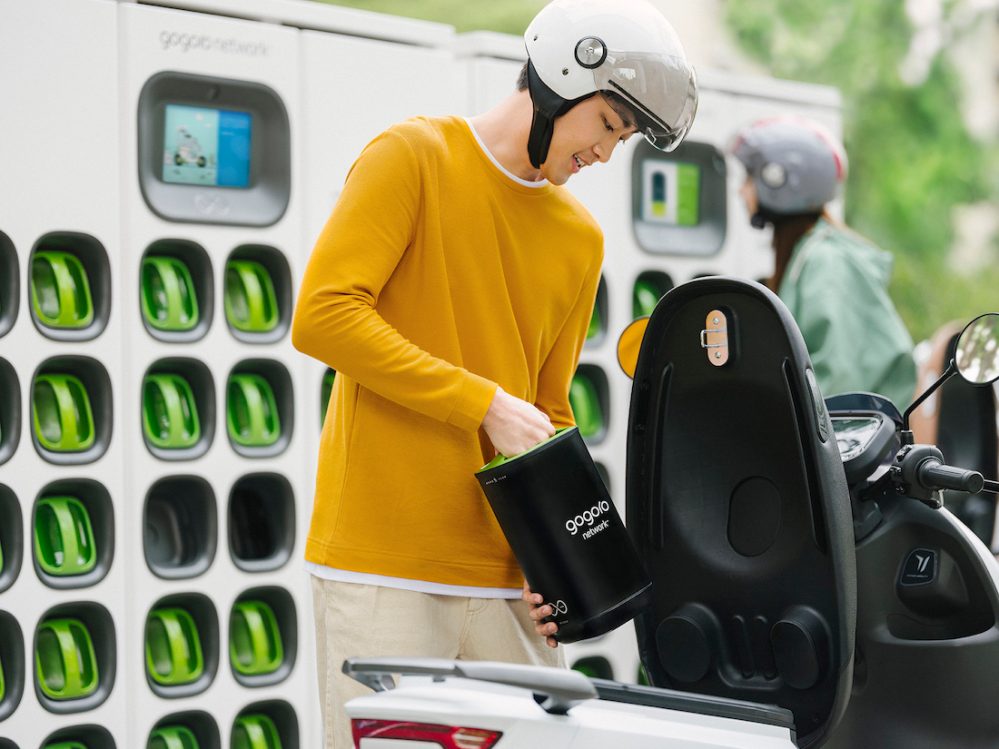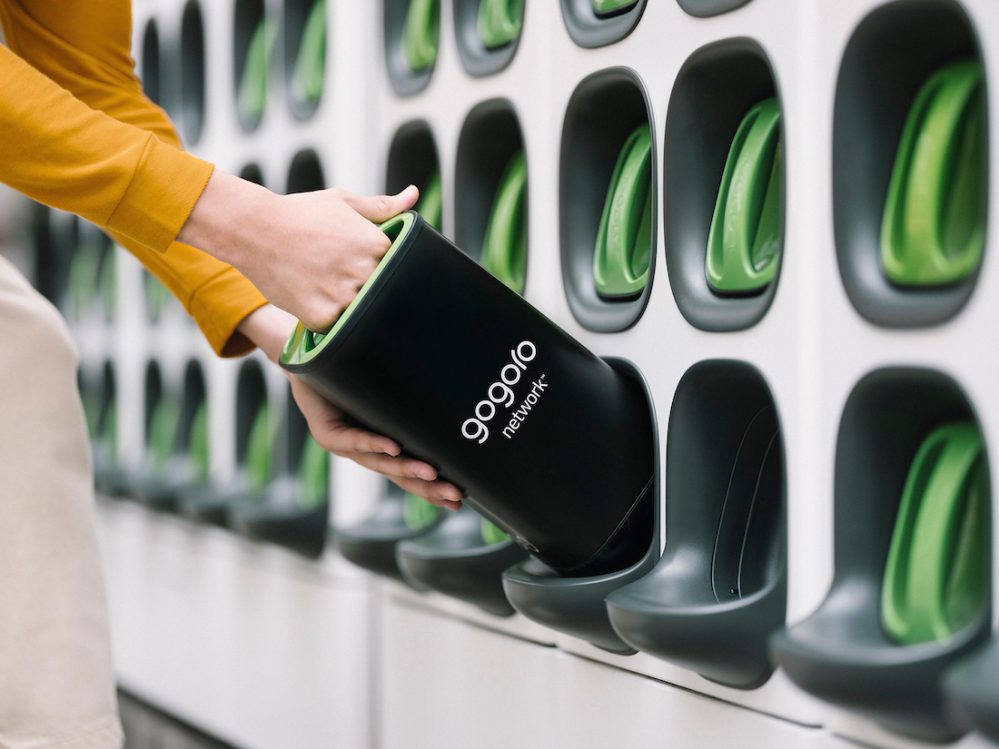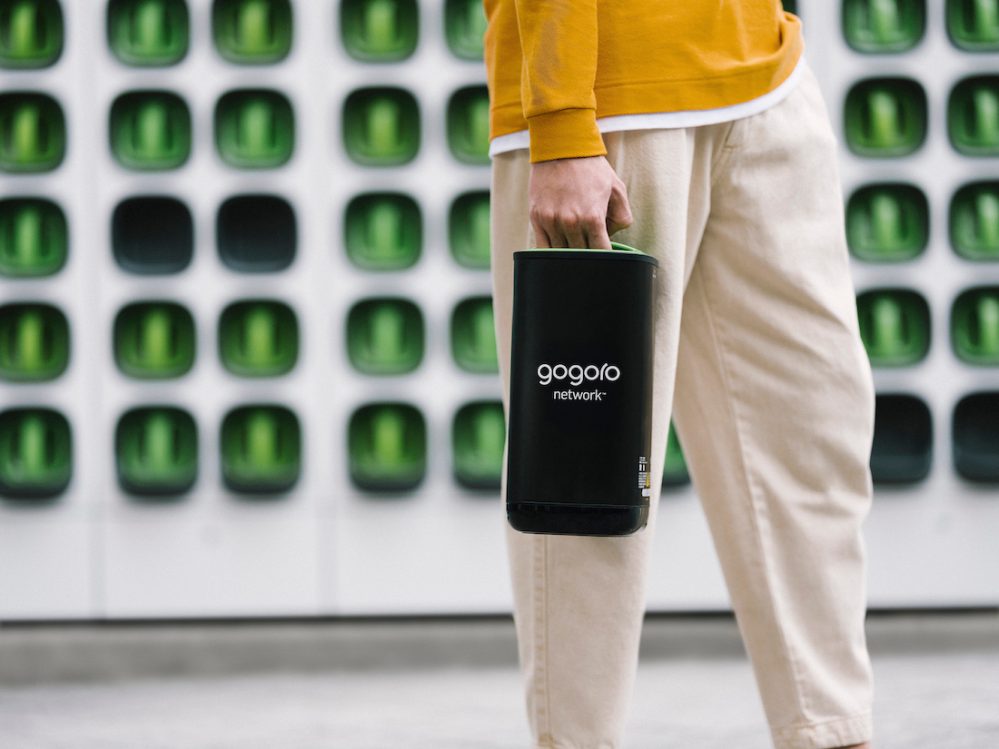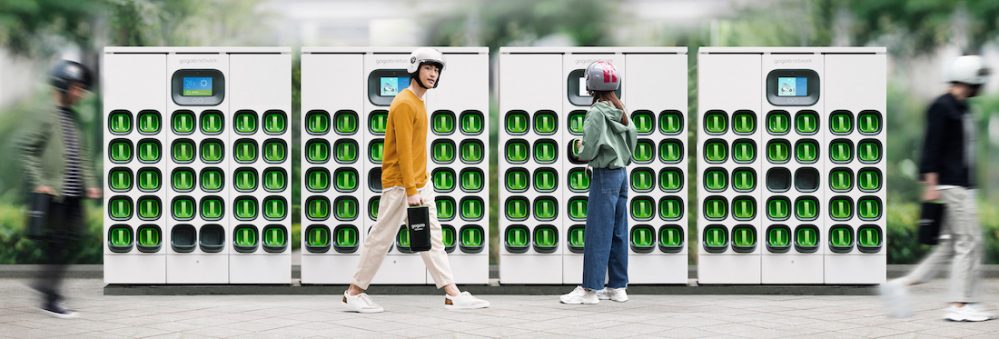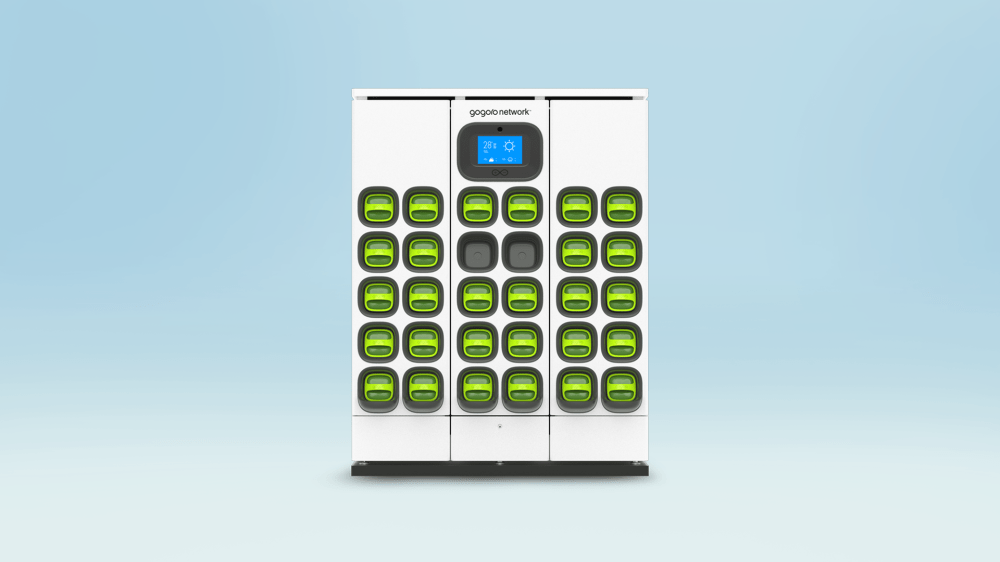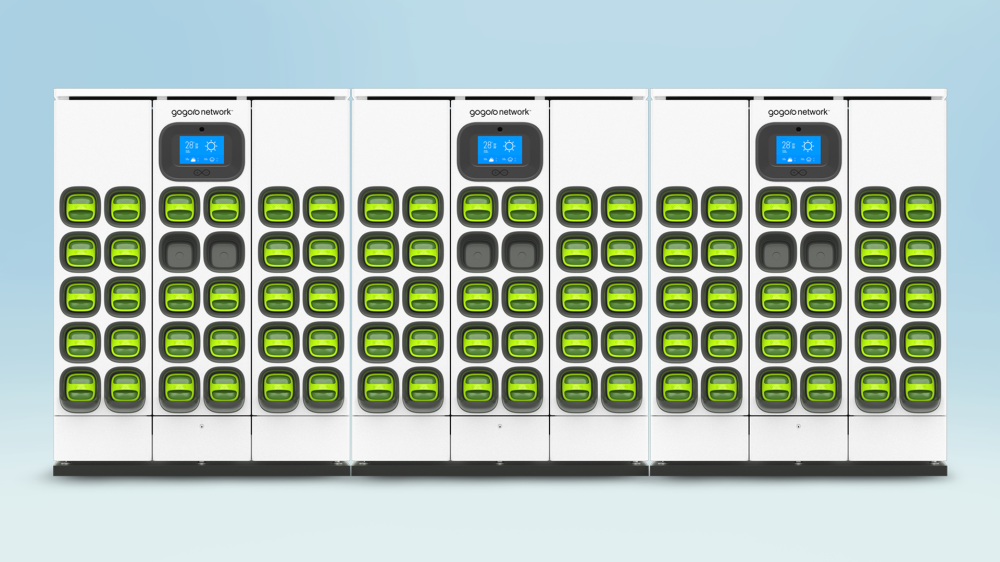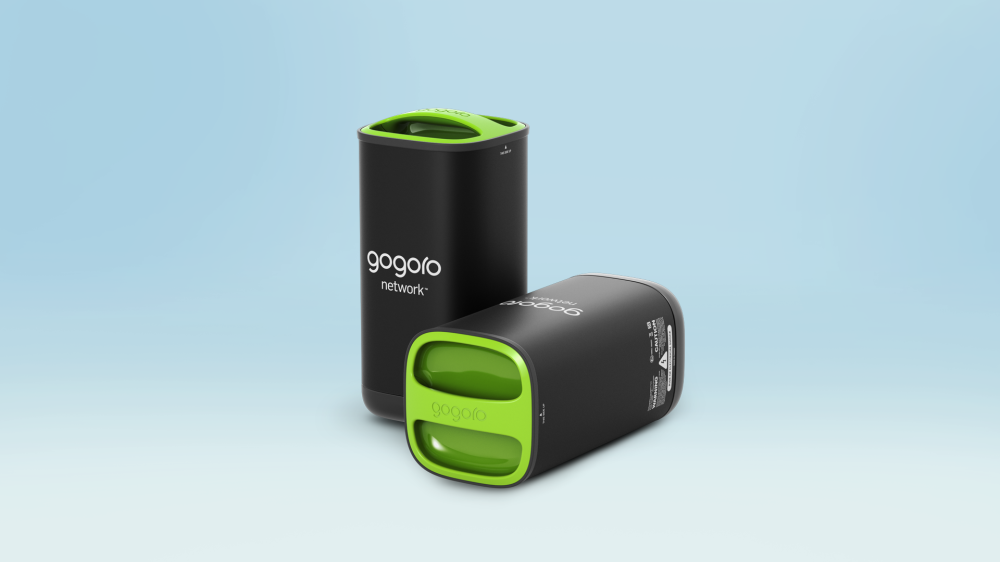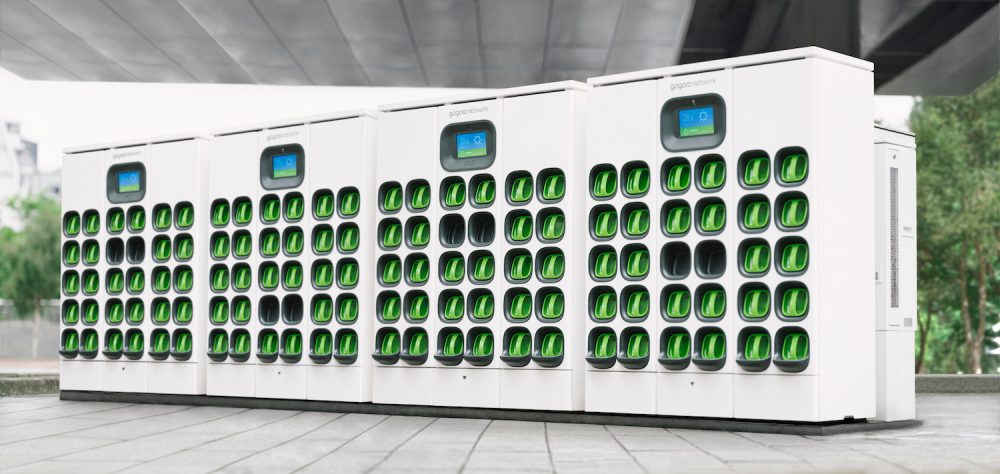
The question used to be, “When will Gogoro finally expand internationally?” Now the better question has become, “Where will Gogoro go next?” The world leader in battery swapping has just announced that its latest international expansion involves a major partnership with two of China’s largest motorbike companies.
With over 185 million battery swaps in its native Taiwan, Gogoro’s sights are now firmly set on China’s massive electric scooter market.
To reach that market, the company has partnered with two major Chinese two-wheeler manufacturers, Yadea and Dachangjiang Group (DCJ). Yadea is the largest electric scooter manufacturer in the world and DCJ is the largest two-wheeled vehicle manufacturer in China.
The partnership will see Gogoro’s battery swap stations enter the Chinese market as well as the formation of a new joint venture between Yadea and DCJ. The new company will oversee the implementation of the Powered By Gogoro Network in China, bringing Gogoro’s famous battery swapping solution to Chinese riders.
Both Yadea and DCJ will offer electric scooters in China that are designed to operate with Gogoro’s swappable batteries.
The news comes after two past international expansion announcements from Gogoro signifying plans to enter markets in India and Israel. Markets in Asia could stand to benefit immensely from these types of battery-swapping electric scooters, which replace gas scooters without the generally associated high costs of electric scooters.
Because riders can purchase the scooter without the battery – the single most expensive component of the scooter – the technology becomes more affordable and accessible to larger swaths of the population. That makes it easier to implement these types of solutions that have major positive impacts on the world’s climate and transportation crises.
As explained by former vice president Al Gore, one of Gogoro’s investors through his Generation Investment Management firm:
“Asia’s most populated cities are beginning to adopt cleaner urban transportation systems for their millions of scooter and motorcycle riders by leveraging innovative electric refueling solutions like Gogoro battery swapping. Gogoro’s partnership with Yadea and DCJ in China, which builds upon their existing work with Hero MotoCorp in India, sends a clear signal that the world’s two-wheel leaders are helping to fuel the sustainability revolution in Asia with smart battery swapping.”
By partnering with existing two-wheeler manufacturers, Gogoro is also able to help lower the barriers to entry for these companies.
Gogoro’s powertrain solutions can be more easily combined with existing or new scooter designs from third-party companies. That makes it simpler and cheaper for gas scooter companies to begin producing electric scooters.
And the demand for such technology has allowed Gogoro to choose its partners carefully.
As Gogoro CEO Horace Luke explained:
“Introducing a new era of sustainable urban transportation in China takes industry leaders like DCJ, Yadea and Gogoro coming together with a shared vision to embrace new business models and technologies that set the stage for a better future. We all share an ambitious vision for changing how China’s cities operate in smarter and cleaner ways and the Gogoro Network was created to provide an easy path forward for simple and sustainable electric refueling of two-wheel vehicles with smart battery swapping.”
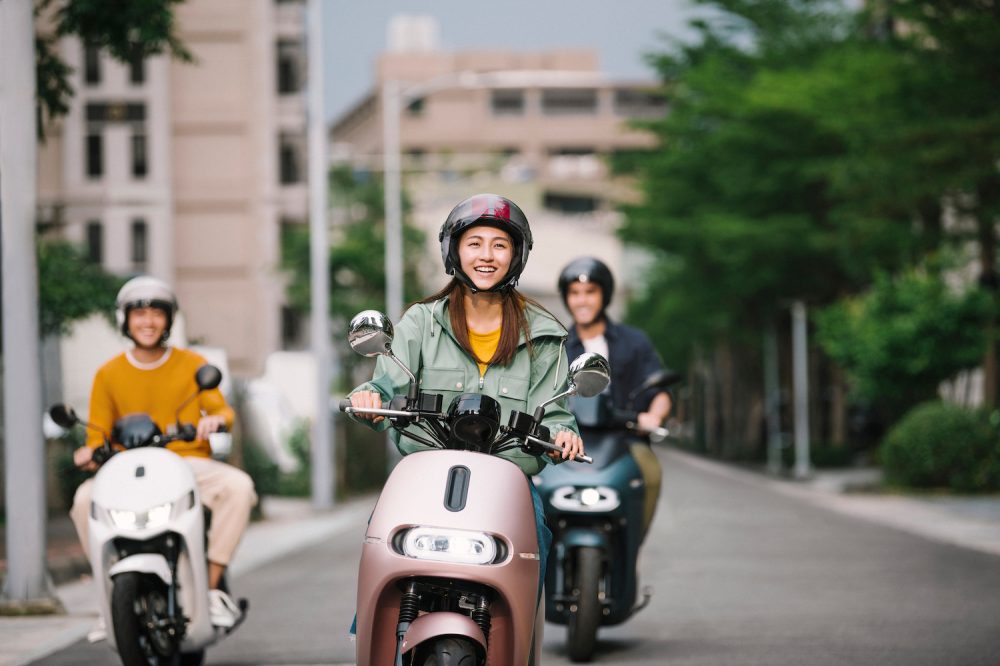
The partnership with Yadea and DCJ will likely prove to be quite strategic for Gogoro. Just last month we learned that Gogoro was partnering with Hero, an Indian motorcycle maker that sells its two-wheelers in dozens of countries. Despite being the largest motorcycle manufacturer in the world, one key country in which Hero doesn’t operate is China.
But now Gogoro has managed to penetrate the massive Chinese market by partnering with Yadea and DCJ.
The Chinese market also represents a different landscape for Gogoro. In India, two-wheeled transportation is the norm, but 99% of motorbikes are gas-powered. The Hero deal will see Gogoro’s technology used to try to convert riders to electric vehicles. But in China, around 90% of two-wheelers are already electric. There, Gogoro’s technology will open the door to more convenient, lower-cost ownership via its battery swapping model, the Powered By Gogoro Network.
A key aspect to the Gogoro Network’s success has been the company’s ability to make use of the huge amount of data produced by the network. With hundreds of millions of battery swaps under its belt, Gogoro has fine-tuned the art of nationwide battery swap infrastructure. These small details have been critical to Gogoro’s success.
For example, the stations feature dynamic pricing that helps to reduce peak demand during rush hour by incentivizing swaps outside of heavy-use hours. Batteries are mostly naturally moved throughout the system by riders instead of by Gogoro employees needing to readjust battery inventory at stations. And the stations are even self-powered from the batteries so they don’t go down during unexpected blackouts. In fact, the stations can be used to feed energy back into the grid during emergencies.
“It’s not just a box on the side of the road charging batteries,” Horace explained to Electrek. It’s the culmination of years of research and implementation to fine tune the system in Taiwan before expanding it internationally.
And now that system is finally going to be implemented in the countries that need it most – and the countries where it can have the largest impact.
Electrek‘s take
It’s hard to overstate the gravity of this announcement.
I thought that the Hero announcement was huge, as Gogoro was partnering with the largest motorbike maker in the world. But this might actually be an even bigger deal.
The size of China’s market is hard to grasp, and it will only grow in the coming years. The Chinese government has established strong climate change regulations that include retiring around 270 million inefficient two-wheeled vehicles by 2025. There are also a number of new charging regulations in some cities that regulate how and where personal electric vehicles can be charged.
Gogoro’s battery swapping network is basically the perfect solution all wrapped up in a bow. It consolidates charging into safer localized charging stations (instead of in many living rooms and kitchens, which is common in much of China), provides a jump start for manufacturers to create efficient electric two-wheelers, and lowers the cost of such vehicles for consumers.
What’s not to like?
Subscribe to Electrek on YouTube for exclusive videos and subscribe to the podcast.
Author: Micah Toll
Source: Electrek



